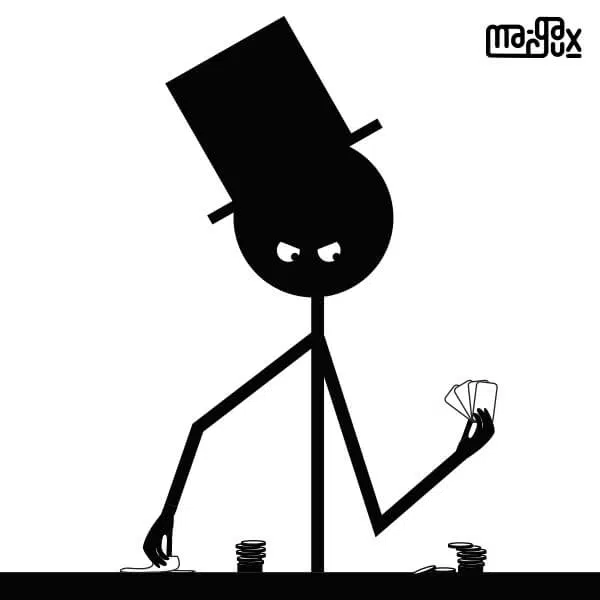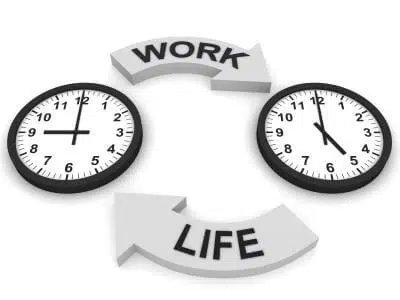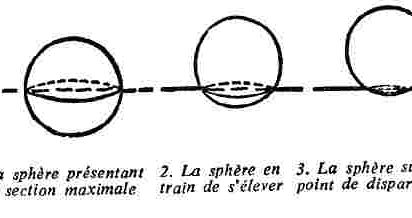On October 8, 2020, before the American presidential election, a programme on France Culture (a French radio broadcast) was entitled: “Trump, sore loser?” (1). The expression “sore loser” was also used after the election, notably in the English-language press (2). But its use raises a problem of interpretation. To claim that a sore loser does not accept defeat is not enough to define what a sore loser is, nor to understand why the term was applied to the President of the United States. To try to understand it better, one has to use the concept of the game.
Our argument can be summed up as follows:
(a) If the expression “sore loser” is equivalent to “bad player,” then the activity in which he participated (we will take the example of the recent US election) had the character of a game (in the first part of this article, we use the words play and game as strict synonyms).
(b) If this activity did not have the character of a game, then the qualification of “sore loser” is not relevant.
(c) If so, why was it used?
In sections 1 to 3 we explore the validity of hypothesis (a). To the extent that it will appear that it should be rejected (since an election is not a game, the term “sore loser” is inappropriate), we make some suggestions in section 4 for answering question (c).
1. Play as a metaphor
To describe the case we have taken as an example, that of the loser in a presidential election, it seems absurd to use the concept of a game. An election is serious by definition, whereas a game evokes entertainment, an activity that seems to be, at best, “a therapeutically effective remedy for overloads of work, worry, or seriousness” (3).
However, the expression “sore loser” refers to play or game. Not because of the word “loser,” which could be applied to non-playful competitive contexts such as war – it refers to “the one who is defeated in a confrontation, an ordeal, a competition, a game” (4) – but because of the adjective “sore.” We will not speak of a sore loser in war, only of he who is defeated. We speak of a sore loser in a game. The expression is synonymous with the bad player and its antonym will be the good loser, “the one who knows how to lose with elegance and good grace” (5).
These simple assertions already raise objections. First of all, as Johann Huizinga pointed out, although “to our way of thinking, play is the direct opposite of seriousness, […] some play can be very serious indeed” (6).
Secondly, the word play can rightly be used in a metaphorical sense, with a serious mind, which seeks to describe and explain reality. Commenting on the statement “Marriage is a game,” Gérald Hess notes that the word game, “considered in its literal sense, has a range of implications, such as being a fight between two opponents, one of whom wins at the expense of the other, or being an activity aimed at pleasure and satisfaction, etc.” (7).
Metaphor is never more than a means of understanding reality, and the use of play as a metaphor – a serious metaphor – is rather profitable. Eugen Fink may have said of Plato that he “struggles passionately against the world-significance of play,” he also observed that his thought “oscillates in the element of the playful, [that it] is a high, sublime play of thoughts, [that it] is in all seriousness and rigor detached in the free distance it takes from itself, serious in its jests and jesting in its seriousness, full of Socratic irony and subtlety, familiar with and enjoying the allure of the mask” (8). Play is not a metaphor for the world, but it is present in the world and fulfils a function in it.
2. Two classic definitions
If the concept of play is to be used to assert and justify the loser in an election as a sore loser, it is necessary to ensure that the general definition of play is consistent with electoral activity.
We cannot report here on the definitions of play that have been proposed in philosophy, history, ethnology, anthropology, sociology and psychology. However, two definitions are often cited. Firstly, that of Huizinga, which is based on a series of criteria:
“We might call it a free activity standing quite consciously outside ‘ordinary’ life as being ‘not serious,’ but at the same time absorbing the player intensely and utterly. It is an activity connected with no material interest, and no profit can be gained by it. It proceeds within its own proper boundaries of time and space according to fixed rules and in an orderly manner. It promotes the formation of social groupings which tend to surround themselves with secrecy and to stress their difference from the common world by disguise or other means.” (9)
The second definition, by Roger Caillois, partially overlaps with Huizinga’s by listing the qualities of play, formal qualities in the sense that they are independent of its content (10). Play is defined as an activity which is essentially free, separate (“circumscribed within limits of space and time, defined and fixed in advance”), uncertain, unproductive (“creating neither goods, nor wealth, nor new elements of any kind; and, except for the exchange of property among the players, ending in a situation identical to that prevailing at the beginning of the game”), governed by rules (“under conventions that suspend ordinary laws, and for the moment establish new legislation, which alone counts”), make-believe (“accompanied by a special awareness of a second reality or of a free unreality, as against real life”).
If certain criteria are found in electoral activity, two seem to be excluded: unproductiveness and make-believe. This is enough – if we take Caillois’s criteria – to refute the idea that electoral activity is characterised as play. What is more, this undermines the idea that the game could be a metaphor, because it presupposes fidelity in the correspondence – a homology – between reality and its metaphorical designation.
Another argument goes against the application of the concept of play to electoral activity. Gregory Bateson observed that, when participating in play, one is able to state the phrase “This is play,” in addition to other messages used to interpret the situation (11). This phrase is a means of defining the boundary between play and non-play. It is easy to imagine situations where players have to explain to observers that their occupation is play and not, for example, aggression or struggle. And it is important that, during play, the belief that “This is play” remains in the mind of each participant (12). But it cannot be pronounced in the electoral context that we consider in this article, except in an ironic or mocking sense.
3. A definition of play (and game) as a “process”
So far, our brief exploration is inconclusive. Hypothesis (a) – if the term “sore loser” is equivalent to “bad player,” then the electoral activity in which the loser participated having the character of play – seems to have to be rejected. But this would make the qualification of “sore loser” unintelligible, unless it is considered only as a manner of speaking, a formula that should not be taken literally, the expression of a convention the function which would be only to give a name to a situation.
There remains at least one possibility to defend the hypothesis that electoral activity has the character of play. It is based on the idea that what characterises play is the process by which a goal is achieved, rather than the goal itself.
Stephen Miller has made such an argument (13). He argues that the process that is characteristic of play includes the deliberate placing of obstacles on its course to increase the enjoyment of the participants (14). Looking at play in young baboons, he notes that they “galumph,” a word coined by Lewis Carroll, is a mixture of the verbs “to gallop” and “to triumph,” and describes an awkward gait, expressing a form of joy. Miller notes that, in play, everything happens as if the participants voluntarily place obstacles in the way of their goal (15).
But this goal is not the essence of play. For placing obstacles in its way expresses a general property of play: the fact that it gives more weight to the means than to the end. To illustrate this, Miller compares a play activity to a learning activity:
“[In the learning or task mode], activities are under the control of goals –means are marshalled at the service of ends. In play, the means are given much freer sway.”
This feature would be of little value if it did not, according to Miller, result in pleasure: “The fun or motivating pleasure of practice play appears to be a function of process.”
These considerations allow him to meet the objective of his article, which is to identify the elements common to all play:
“Play involves a relative autonomy of means. Ends are not obliterated, but they don’t, as in some other modes of organization, determine the means. Furthermore, this state of affairs implies a degree of autonomy for the actor who manipulates the processes at his disposal, which makes for freedom to assume roles otherwise unreal. Finally, means are elaborated by a psychological process that we have thus far referred to as ‘galumphing’ – in general, the voluntary placing of obstacles in one’s path.”
Miller’s argument may be considered too general, or even imprecise. But he cannot be criticised for considering only plays, which are non-competitive and whose raison d’être is the pleasure they provide, not the achievement of victory. For he also applies his definition to games, which “are play with highly organized patterns of galumphing.”
Do Miller’s observations lend credence to hypothesis (a), which states that electoral activity has the character of a game? No. That candidates in an election themselves place obstacles in the long road to victory is an unacceptable assertion. But it may reveal confusion and explain the use of the term “sore loser” in connection with an election.
The confusion lies in the following analogy: while electoral activity can be described as a “long road full of pitfalls” (a frequently used description), it evokes the voluntary obstacles that Miller argues characterise play or a game. The qualification of “sore loser” would benefit from this analogy. It would be reinforced by the idea that if candidates agree to take part in a course full of pitfalls, it is because they find satisfaction that can be compared to the pleasure of the game’s activity.
4. Why was the term “sore loser” used?
Perhaps this confusion reflects the use of the term “sore loser.” But it does not support hypothesis (a). The difficult path candidates follow in an election is the result of rational calculations strictly oriented towards one goal – electoral victory – whereas the game, as Miller sees it, does not respond to this rationality imperative at all. The belief that the course of the game is like the course of a game is a false belief.
It should be added that electoral activity, in addition to being strictly goal-oriented, literally relies on programmes, slogans, explicit themes repeated by candidates and their supporters in public statements during the process leading up to the election. This literality, however, has been deemed to be contrary to the nature of play, notably by Stephen Nachmanovich:
“The opposite of play is not work or seriousness, because work can be play and play can be serious. It is not even, as some have suggested, depression because depressed, people may have lively and fruitful fantasies. The opposite of play is one-dimensionality or literal-mindedness.” (16)
And we come back to our question (c): if electoral activity is not a game, why was the term “sore loser” used? There are other answers in addition to those we have already considered – the manner of speaking, the analogy between the difficult journey of candidates in an election and the obstacles of play or game. They may be based on new analogies (for example, the struggle is a common feature of the game and the electoral process), the intuition that a game is a copy of reality, or, in the case of the recent US presidential election, an attribution bias (the characterisation of a “sore loser” after the election would evoke traits that correspond to the “sore losers” of games).
We, for our part, prefer the “manner of speaking” hypothesis. To what kind of language act does “sore loser” belong? Affirmation? Provocation? Boasting? In any case, in the context we have considered, the expression seems conventional, a rather worn-out metaphor, without real substance, without real justification, superficial even in its ironic pretension. It is far removed from the creative richness of play or game.
Alain Anquetil
(1) Brice Couturier, France Culture, 8 October 2020.
(2) See for instance “When Trump vandalizes our country,” New York Times, 11 November 2020, and “Trump asked if he is ‘sore loser’ by CNN reporter Jim Acosta after baseless rant about election fraud,” Independent, 6 November 2020.
(3) E. Fink, Spiel als Weltsymbol, Stuttgart, Kohlhammer, 1960, tr. translated by I. A. Moore and C. Turner, Play as symbol of the world and other writings, Indiana University Press, 2016.
(4) Source: CNRTL.
(5) Grand Larousse de la langue française, Vol. 5, Paris, Librairie Larousse, 1989.
(6) J. Huizinga, Homo ludens: A study of the play element in Culture, Routledge & Kegan Paul, 1949.
(7) G. Hess, “L’innovation métaphorique et la référence selon Paul Ricœur et Max Black : une antinomie philosophique,” Revue Philosophique de Louvain, 102(4), 2004, pp. 630-659.
(8) E. Fink, op. cit.
(9) J. Huizinga, op. cit.
(10) R. Caillois, Les jeux et les hommes. Le masque et le vertige, Paris, Gallimard, 1958, translated by M. Barash, Man, play and games, University of Illinois Press, 1961.
(11) G. Bateson, “Theory of play and fantasy,” in Steps to an Ecology of mind, New York, Chandler Publishing Company, 1972.
(12) It is also unstable. For example, apparently aggressive behaviour between players, but controlled and accepted within play (or, in other words, not indicative of aggression or hate between participants), can become truly aggressive and hate-fuelled behaviour.
(13) S. Miller, “Ends, means, and galumphing: Some leitmotifs of play,” American Anthropologist, 75(1), 1973, pp. 87-98.
(14) An argument found in Caillois (which Miller strangely seem to ignore), notably in this passage: “Such a primary power of improvisation and joy, which I call paidia, is allied to the taste for gratuituous difficulty that I propose to call ludus, in order to encompass the various games to which, without exaggeration, a civilizing quality can be attributed” (op. cit.).
(15) He defines “galumphing” as follows: it is a “patterned, voluntary elaboration or complication of process, where the pattern is not under the dominant control of goals” (op. cit.).
(16) S. Nachmanovitch, “This is play,” New Literary History, 40(1), 2009, pp. 1-24. According to him, literalism is the “deeply ingrained tendency to flatten things onto a plane.”





